⭐️⭐️⭐️1/2
52-week film challenge, film 35
This review is dedicated to Don Smith, a recently-deceased podcaster on one of my favourite podcasts (Watchers of the Fourth Dimension), who loved this movie.

The early 70s covered a lot of cultural ground, but one of the weirder cul-de-sacs was the emergence of the Rock Opera, in which pop composers attempted to Do Something Meaningful by combining multiple rock songs into a (sometimes semi-) cohenent plot line. The form began in either 1968 (with S.F. Sorrow by The Pretty Things) or 1969 (The Who’s Tommy), depending on who you ask.
It hit big first with Jesus Christ Superstar in ‘70, Bowie’s album The Rise and Fall of Ziggy Stardust and the Spiders From Mars in 72, and the original stage production of The Rocky Horror Show in ’73. Movies of some of these efforts followed on, peaking in the mid–70s: Jesus Christ Superstar in late ‘73, Phantom of the Paradise in ‘74, and arguably the most successful examples, The Rocky Horror Picture Show in ‘74 and The Who’s Tommy in ‘75.
Of these films, all but one was a well-polished and long-running stage musical, and it was Phantom of the Paradise. In my view, it is less successful as a rock opera because of this — but on the other hand it borrows liberally from two great sources: the 1909 novel and 1925 classic film The Phantom of the Opera and Lon Chaney’s memorable performance, and of course Faust.
Brian De Palma’s second commercial film, seen now, will remind people of Rocky Horror in some ways — over-the-top camp, rollickin’ rock music, and the eccentric camerawork. It’s an amusing movie, particularly as a parody of Faust (and for pre-Muppets Paul Williams) but the humour is probably boosted if you are already enjoying some recreational substances, as people surely did at the time this came out. There’s no doubt in my mind that De Palma saw Rocky Horror on stage, and spotted the future filmic potential, though I’d love to verify that.
The plot, basically: a singer-songwriter named Winslow Leach (William Finley) creates a cantata based on Faust, and this gets heard by a rich record producer named Swan (Paul Williams). Swan thinks the cantata will be perfect for the opening of his new concert hall, and has his henchman Arnold Philbin (George Memmoli) steal it.
Leach, expecting to hear back from Swan, makes repeated attempts to get back in touch but keeps getting thrown out. On one of these visits, he hears Phoenix (Jessica Harper) singing a portion of his work and falls in love.
This time, Leach is framed for drug possession, is sent to prison for life, and has his teeth forcibly replaced with a steel set. A few months later, he hears that Swan’s band The Juicy Fruits have covered part of his music, goes berserk and escapes prison, breaks into Swan’s record-pressing plant as is severely disfigured when he falls into one of the record-pressing machines.
Seeking revenge, he breaks into the Paradise club itself, hiding in the costume department and finding a stylish silver owl mask and cape to complete his transformation into the Phantom (these bird metaphors are already laid on kind of thick). He hears the Beach Bums (formerly the Juicy Fruits) rehearsing a reworked version of his music and nearly kills them all, which attracts Swan’s attention.
Swan tracks Leach down and proposes a deal: finish the cantata and record it in a custom built recording studio. Swan gives Leach a voice box to (kind of) replace his destroyed vocal cords, promises that Phoenix will be the lead, and makes him sign a contract in blood.
Leach completes the cantata at the point of exhaustion, allowing Swan to steal it and replace Phoenix as the lead with (I’m not kidding) a glam rock prima donna named Beef (Gerrit Graham). Swan orders the studio sealed up with bricks.
Leach recovers, and in a fit of adrenaline smashes his way out of the bricked-up exit, makes his way to the Paradise, and confronts Beef in his shower, threatening him not to perform the lead.
Beef agrees, but is forced by Swan and Philbin to return and perform for the rehearsal. Leach’s Phantom is in the rafters, and when he see this repeated betrayal he sends a neon lightning bolt down, which fries Beef.
Philbin, understanding that the Phantom is behind this, promotes Phoenix to do the next song, and — surprise! — everyone loves her, including Swan. Swan promptly begins seducing Phoenix, and the Phantom tries briefly to warn her, but she is panicked and doesn’t recognize Leach.
Later, the Phantom spies on Swan and Phoenix as they prepare to make love. He tries to kill himself out of despondence, but Swan appears on the roof to tell Leach he cannot die until Swan dies because of their contract. So Leach attempts to kill Swan, but Swan points out that “I’m under contract too,” explicitly revealing he made a pact with the devil 20 years earlier to stay eternally young.
Swan announces to the press that he and Phoenix will marry during the finale of his production of Faust. Leach realizes that Swan plans to have Phoenix assassinated as the wedding concludes, as she has also signed a blood contract with him. He goes to Swan’s vault, destroying the tapes and Swan’s filmed and blood-signed contracts, then hastens to prevent the assassination during the wedding.
Because of this, Swan is starting to deteriorate, and dons a mask for the wedding. The Phantom, arriving just in time, swings onto the stage, removes Swan’s mask, and stabs the now-vulnerable Swan again. As a result, they both are now dying, but the now-saved Phoenix finally sees who the Phantom is, and stays with him as he dies.
So yeah, pretty convoluted, with a little “Picture of Dorian Gray” thrown in for good measure. It’s very well-shot in most places, with a bright colour palette and some fish-eye shots and other moments that remind me of A Clockwork Orange.
Williams wrote all the music, and performs as the Phantom’s singing voice, and it should be mentioned that the staging of the actual in-film Faust is a glorious tribute to The Cabinet of Doctor Caligari, with the Juicy Fruits/Beach Bums now performing as goth-y Greek chorus The Undead. I should mention that Williams’ songs are not at all bad, but as catchy as they are (at times), they never hit the level of “memorable” the way the aformentioned started-as-a-stage-musical songs do.
As a horror/comedy/drama, it kind of works, but it’s a stew with too many ingredients in my view. Luckily, the film improves as it goes on, and the ending is really very satisfying.
I can see why some people love this film, as it is as bombastic, in-your-face and over-the-top as a rock musical perhaps should be. If it had been polished and honed as a stage show first, I have little doubt that I’d love it like that as well. By the way — why hasn’t this film gotten a proper stage treatment yet?
Rocky Horror, which came out a year later, is frankly a better example of a sex/drugs/rock musical on film on every level. That said, Phantom of the Paradise has its charms, and remains an upstanding denizen of the “midnight movie” genre.

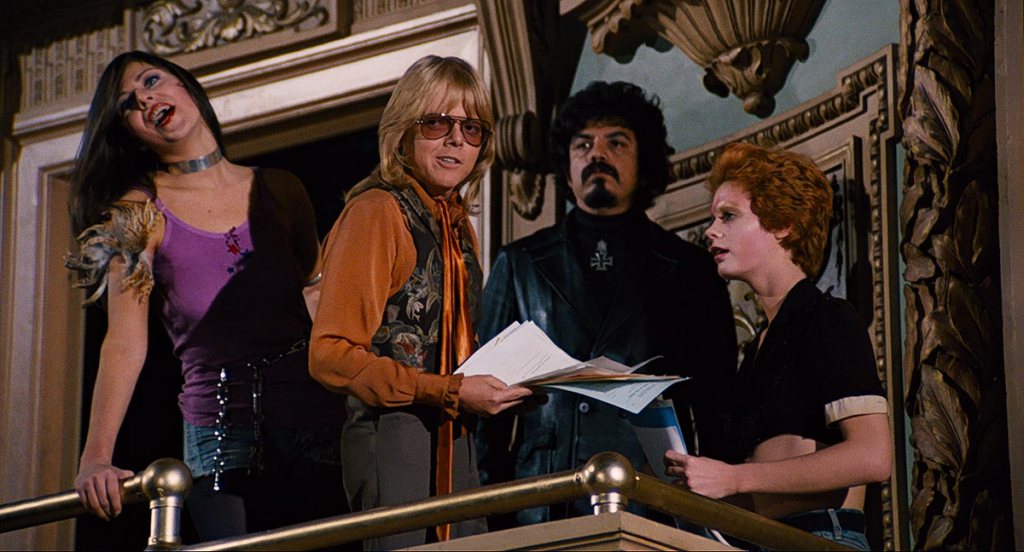

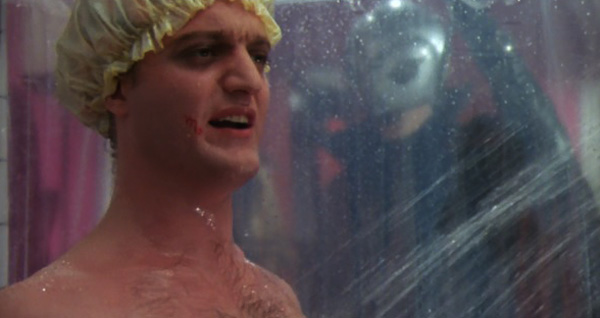
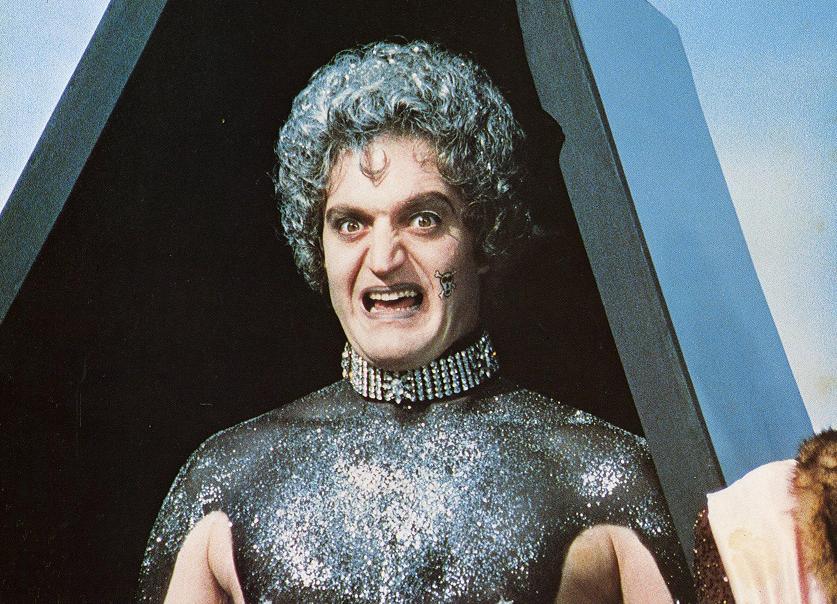
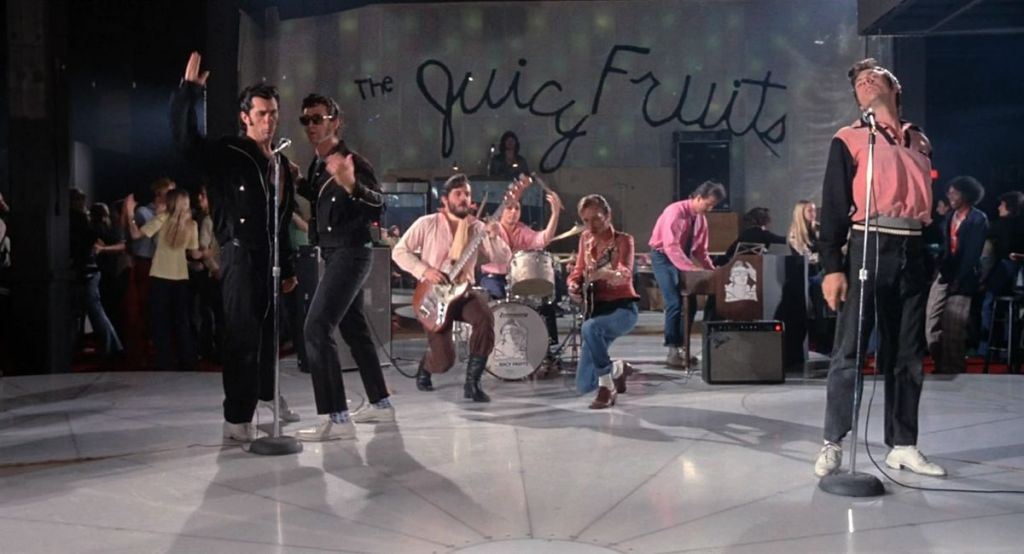

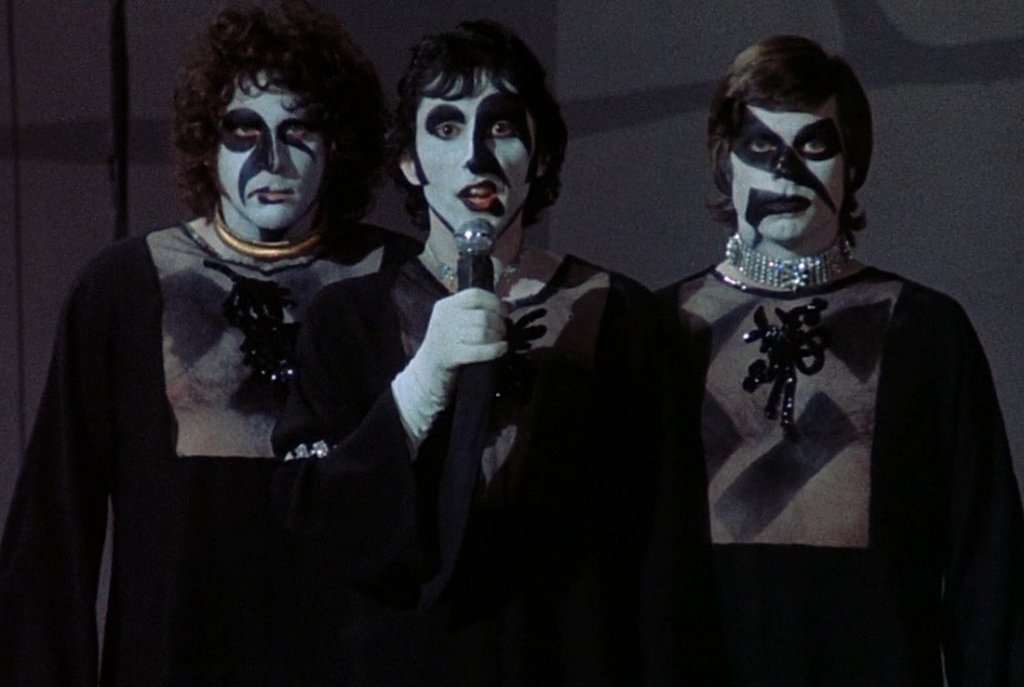

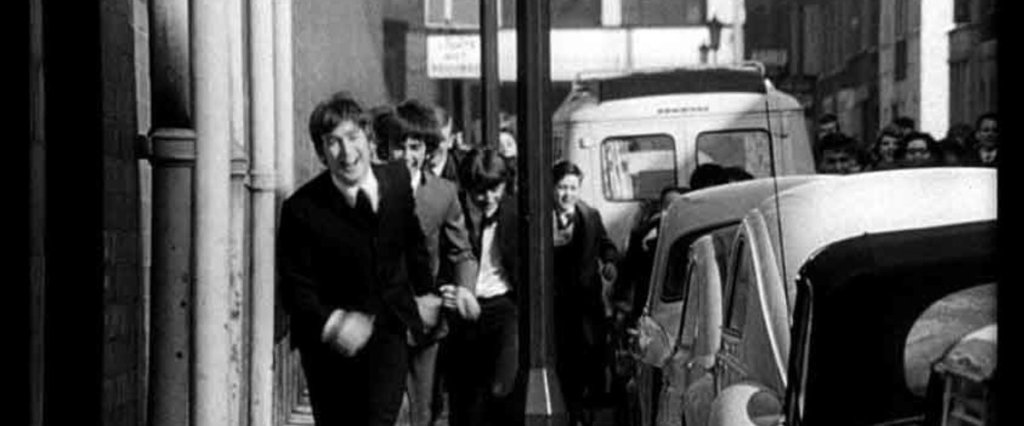
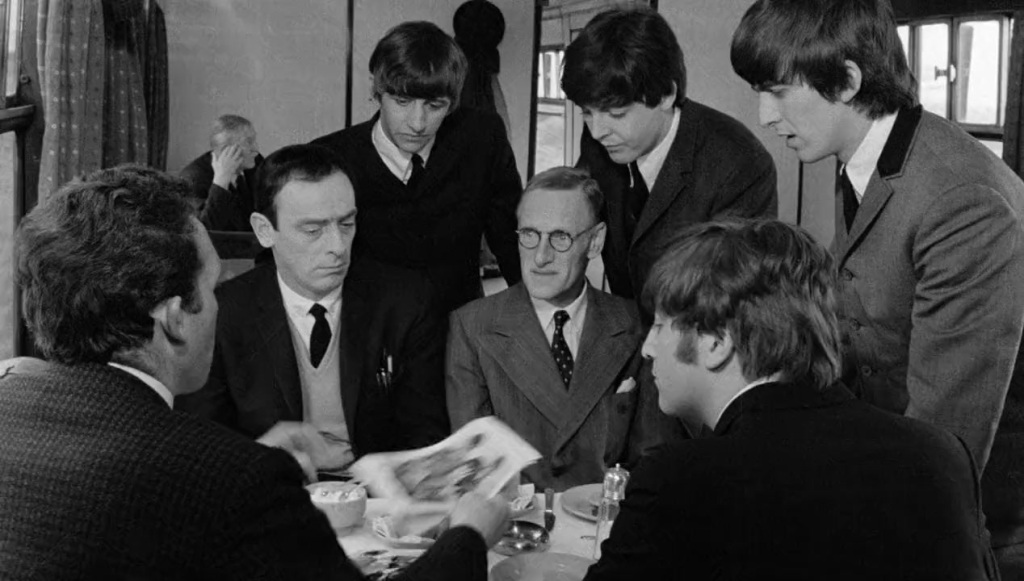
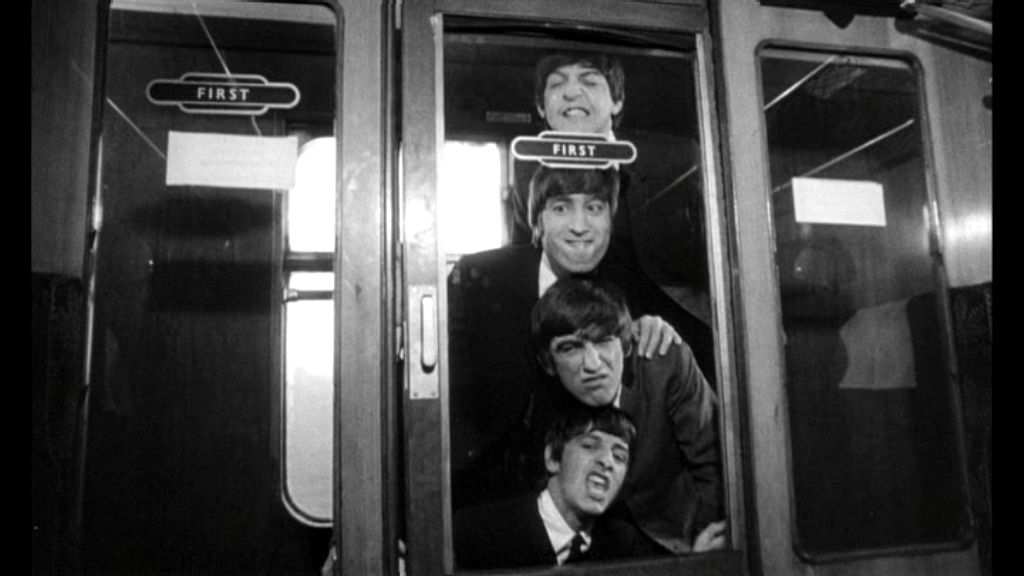
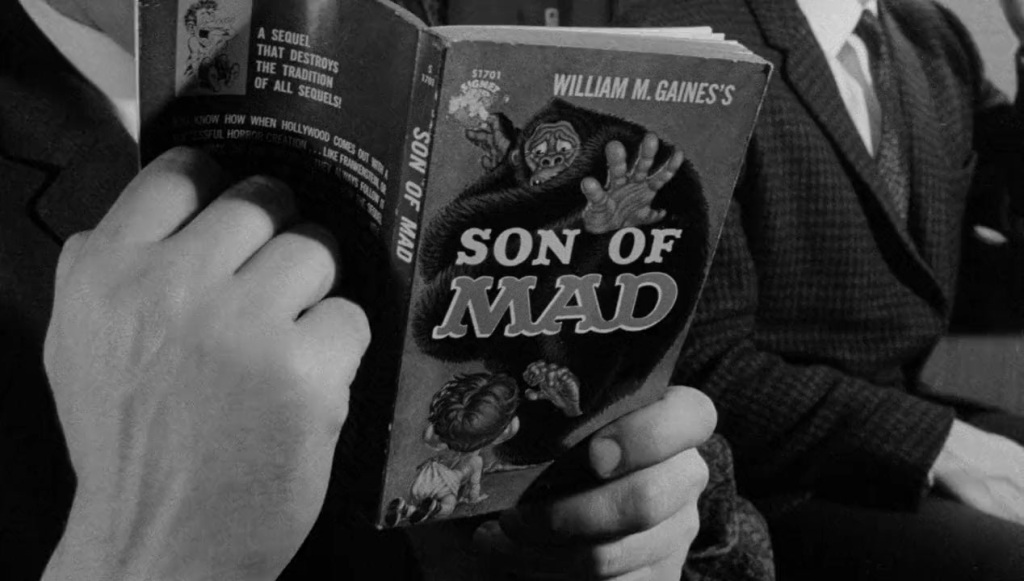
Recent Comments